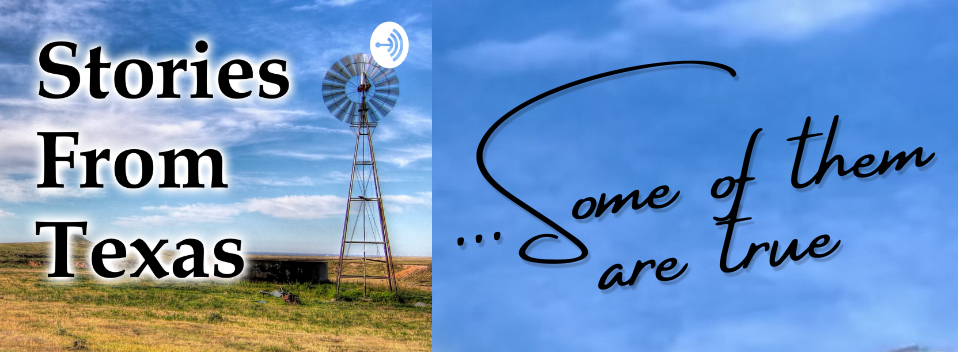
Stories From Texas
Loading...
Document Type
Article
Publication Date
3-26-2023
Abstract
How much is a promise worth? How much is it worth if you guarantee the promise with a handshake? What is the value of one’s word? In Texas, once, all these taken together were worth over $10 billion in a court of law.
In one of the most fascinating legal cases in Texas history, one oil titan sued another, and the case turned on whether or not, in Texas, a promise – a formal agreement – and handshakes equaled a legal contract. Here is the short version of what happened.
In 1983, Pennzoil wanted to buy controlling interest in Getty Oil and the leaders of the two companies, along with their lawyers and investment bankers and such, met in a New York hotel and hammered out a deal over 25 hours. In the end, Getty agreed that Pennzoil would purchase controlling interest in their company for $110 a share. A memorandum of understanding was signed in which Getty certified the deal, with some tweaks on that price to be allowed later. More formal, detailed legal documents would be signed soon. Handshakes followed which sealed the promise being made. A press release was sent to the papers. The announcement of the deal was printed in the Wall Street Journal the following day.
In a plot line worthy of the TV show “Succession,” Texaco was informed of the Pennzoil deal and swept in as the white knight to offer Getty a more respectable $125 dollars a share, which the Getty board quickly accepted. Texaco and Getty Oil were merged. Texaco’s perspective was, “That’s the rough and tumble world of big oil. You snooze, you lose, Pennzoil. You should have gotten a formal, detailed, 200-page contract printed and signed.”
Pennzoil sued Texaco for contractual interference and financial damages totalling $10.5 billion, the largest suit of its kind ever. It was the corporate version of alienation of affection. Texaco unjustly and dishonorably robbed Pennzoil of the lucrative deal they had made. But to win, Pennzoil had to prove that they had a contract with Getty in the first place. Was a promise in the form of “the word” of corporate leaders and handshakes equal to a contract?
Joe Jamail was the man who would have to prove it. No less than the great Texas lawyer Percy Foreman had once declared Jamail as the finest trial lawyer the U.S. had ever produced. High praise, indeed. Jamail was not a contract law specialist. He was a personal injury lawyer, but his special genius was making the complex, simple and boiling down many-layered cases to a central theme of “right and wrong.” For this case, he focused on the value of a promise.
The first thing he did was to make sure the case was tried in Texas rather than New York. He didn’t want the case decided by New York lawyers arguing about the nuances of contract law. He wanted a morality play. Jamail wanted a jury of Texans who were more likely to decide the case on what was right rather than what was legal. He sat a jury that was composed mostly of women who had enjoyed long marriages, who had worked in the same companies for years and worshiped at the same churches most of their lives. He wanted jurors who honored vows and promises and believed that your word was your bond and that handshakes were contracts.
It became a case in which the cultures of New York and Texas were on trial, too. One of the New York team, some months before, unfortunately had a back room comment slip into the record. He declared his shock that people in Texas thought a handshake was a contract. This was red meat for Jamail. He got one of the New York team to admit on the stand that a promise was fine for a $10 agreement, but not so sacred when billions were on the table. The New York lawyers even complained to the judge that the Texas legal team, in just the way they said “New York,” were making it sound pejorative.
To undermine Texaco’s strategy of focusing on the complex realities of contract law, Jamail told the jury, “When the law is on the lawyers side, he talks about the law. When the facts are on the lawyer’s side, he talks about the facts…” So Jamail talked about facts. At the end of his summation he said that the evidence in the case shows, “A grievous wrong has been done to Pennzoil by reason of their undoing of this binding agreement… I know you are going to do the right thing. You are people of morality and conscience and strength. Don’t let this opportunity pass you by.”
Pennzoil won. Texaco appealed to the Texas Supreme Court, but they let the judgment stand. Jamail got $345 million for his litigation services and, in time, became the first billionaire practicing attorney in U.S. history. He happily shared his wealth generously with his alma mater, the University of Texas. He said there was no fun in just having money. “The fun was in seeing someone else have an opportunity” because of it.
Format
.MP3, 192 kbps
Length
00:06:13
Language
English
Notes
https://www.texasstandard.org/stories/what-handshake-worth-pennzoil-texaco-getty-oil-jamail-lawsuit-texas/
Recommended Citation
W. F. Strong. "What is a handshake worth?" *Stories From Texas*. Texas Standard. Podcast audio. March 26, 2023.
https://www.texasstandard.org/stories/what-handshake-worth-pennzoil-texaco-getty-oil-jamail-lawsuit-texas/
https://scholarworks.utrgv.edu/storiesfromtexas/152

Comments
© 2023 William F. Strong. Uploaded with permission of copyright holder.